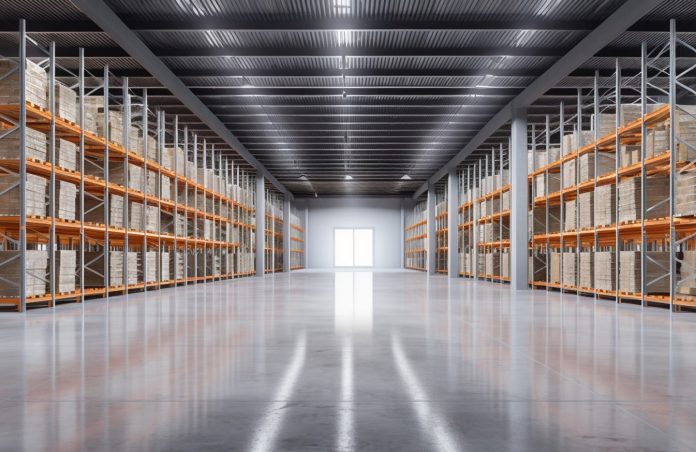The evolution of ecommerce has dramatically transformed how businesses operate. The demand for efficient, scalable, cost-effective warehousing solutions is now higher than ever. If you run an ecommerce business, it’s vital to consider innovative approaches to address these needs.
One such innovative approach is using shipping container warehousing. By leveraging used shipping containers, companies are discovering a flexible, affordable, and sustainable solution to their storage needs.
This article delves deeper into why you should consider this alternative.
The Benefits of Shipping Container Warehousing
Shipping container warehousing offers numerous advantages for ecommerce businesses. From cost-efficiency and scalability to location flexibility and ease of transportation, shipping containers as warehousing solutions can significantly improve efficiency and streamline operations. The durability and security of shipping containers provide added peace of mind when preserving the quality and safety of stored goods.
Cost-Efficiency
Shipping container warehousing is a cost-efficient solution for ecommerce businesses due to the availability and adaptability of used shipping containers. These containers offer a more affordable option compared to constructing traditional warehouses. By repurposing these containers, businesses can greatly reduce their initial expenses for storage facilities, making it a cost-effective choice for managing their inventory.
Flexibility And Scalability
Shipping container warehousing offers ecommerce businesses the flexibility and scalability required to adapt to fluctuations in demand. During peak seasons or periods of increased demand, additional shipping containers can be easily added to accommodate the increased inventory. Conversely, containers can be removed when demand decreases, preventing the business from wasting space and resources. This flexibility allows businesses to scale their warehousing operations according to their current needs without needing permanent or fixed infrastructure.
Location Flexibility
The location flexibility of shipping container warehousing is a significant advantage for ecommerce businesses. Unlike traditional warehouses, shipping containers can be placed in diverse locations, including urban areas with limited space. This allows businesses to choose warehousing locations closer to their customer base or strategically positioned for efficient distribution.
Whether it’s situating a container warehouse near a major transportation hub or placing it within a densely populated city, shipping containers offer a versatile solution that was previously inaccessible. This location flexibility allows ecommerce businesses to optimize their supply chain and effectively meet customer demands by establishing warehousing facilities in areas most advantageous for their operations.
Ease Of Transportation
The ease of transportation is a significant benefit of shipping containers for warehousing. These containers are specifically designed to be transported over long distances using different modes of transportation, including ships, trucks, and trains. This versatility allows businesses to easily relocate their warehousing facilities whenever necessary. As a result, they can efficiently manage their supply chain and minimize logistical complexities. Whether shifting to a more strategic location, responding to changes in market demand, or expanding their operations, the ease of transportation offered by shipping containers simplifies the process and enhances overall efficiency.
Security And Durability
The security and durability of used shipping containers make them an excellent choice for warehousing needs. These containers are constructed with high-quality steel, providing exceptional durability and ensuring their ability to withstand harsh conditions. With their robust build, shipping containers offer reliable protection against various external factors, including extreme weather conditions, theft, and vandalism. Moreover, businesses can enhance container security further by equipping them with advanced features like surveillance cameras and access control systems, ensuring the safety of goods stored within the containers.
Implementing Shipping Container Warehousing
When considering the implementation of shipping container warehousing, there are a few factors to keep in mind:
Container Modification
Used shipping containers can be modified to meet specific warehousing needs. Businesses can install shelving units, climate control systems, lighting, insulation, and ventilation to ensure the optimal storage conditions for different products. Customization options allow businesses to design their warehouse layout efficiently, maximizing storage space and inventory management.
Inventory Management Systems
Efficient inventory management is crucial for ecommerce businesses. Integrating inventory management systems into shipping container warehouses enables real-time tracking, stock replenishment alerts, and streamlined order fulfillment. By implementing these systems, businesses can enhance inventory accuracy, reduce out-of-stock situations, and improve operational efficiency.
Collaboration With Logistics Partners
To further streamline operations, ecommerce businesses should consider collaborating with logistics partners experienced in shipping container warehousing. These partners can provide expertise in managing containerized storage, transportation, and inventory management, ensuring seamless coordination between warehousing and distribution.
Conclusion
Shipping container warehousing offers ecommerce businesses a range of benefits, including cost-efficiency, scalability, easy transportation, location flexibility, and enhanced security. Businesses can create customizable and durable warehousing solutions that adapt to changing demands by repurposing used shipping containers. With proper modification and integration of advanced inventory management systems, shipping container warehouses can optimize storage space and streamline order fulfillment. By considering shipping container warehousing, ecommerce businesses can meet the growing demands of their customers while maintaining a competitive edge in the industry.




































